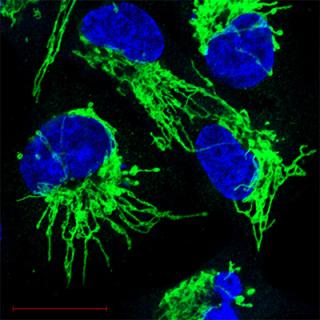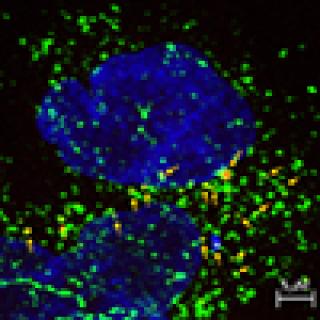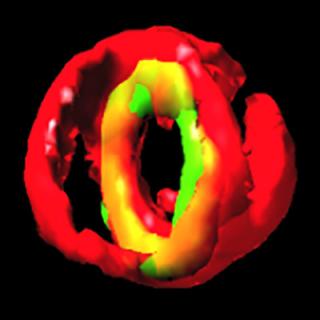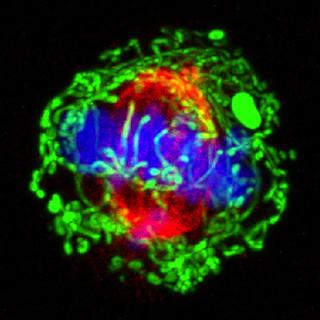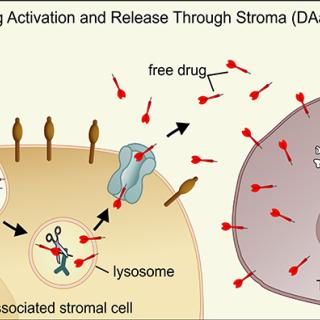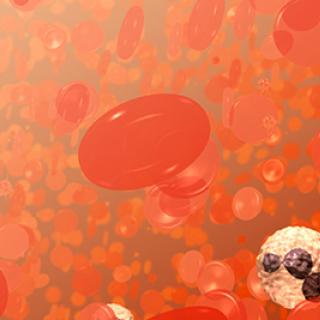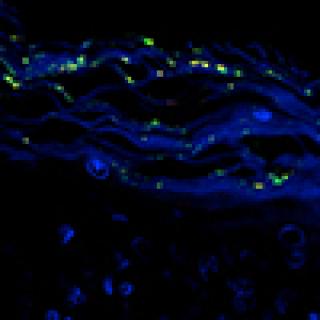Our Discoveries
Protein mutations lead to human disease by altering a cancer-promoting pathway
Working in collaboration with a team of other scientists, CCR researchers identified the role that the LZTR1 protein plays in disrupting the RAS pathway. It interferes with signaling, largely by dysregulating ubiquitination, a process defined as the attachment of a small protein called ubiquitin to a protein that is degraded by an enzyme.
Read MoreNew therapies tested in mice provide a one-two punch for treating liver cancer
Biopharmaceutical agents that combine the precision of cancer-specific antibodies and the potency of drugs toxic to harmful cells are increasingly being used to treat cancer. A team in CCR has identified two such agents for liver cancer, which were both found to reduce tumor size and prolong survival in mice.
Read MoreStudy reveals function of protein crucial to survival of Staph infections
A team led by Kumaran Ramamurthi, Ph.D.,Senior Investigator in the Laboratory of Molecular Biology, has identified why the GpsB protein is essential for the survival of Staphylococcus aureus, a leading source of infection in cancer patients in hospital settings. These findings, published in eLife, point to GpsB as a possible antibiotic target.
Read MoreStudy reveals regions where harmful DNA breaks are most likely to occur
Center for Cancer Research investigators have discovered that double-strand DNA breaks—the most dangerous form of DNA damage, which can lead to cancer—tend to occur during DNA replication at regions known as poly(dA:dT) tracts. Their findings represent a first step toward investigating ways to prevent these harmful DNA breaks.
Read MoreCommitting to cell division may be clue to cancer cell growth
In a new study in Nature, CCR researchers describe, for the first time, how a cell commits to dividing during the cell cycle. Since cancer cells divide when they should not, targeting this pathway might stop their inappropriate growth.
Read MoreAntibody-linked drug shrinks various types of tumors in preclinical study
A preclinical study by Center for Cancer Research investigators and colleagues shows that a drug guided by an attached target-seeking antibody can recognize cells infiltrating tumors, the tumor stroma, and cause various types of tumors to shrink, and in many cases, disappear. Their findings suggest that when stromal cells take up the ADC, they cleave the drug from the antibody and release it to kill neighboring tumor cells.
Read MoreActivated platelets can promote tumor cell invasion into healthy tissue
Pre-clinical studies conducted by CCR investigators and colleagues show that platelets, tiny cells that promote blood clotting, when activated by the CD97 protein on the surface of tumor cells, enable the tumor cells to invade healthy tissue and then metastasize. The study, published April 17, 2018, in Cell Reports, was led by Kathleen Kelly, Ph.D., Chief, Laboratory of Genitourinary Cancer Pathogenesis.
Read MoreNew study shows normally helpful natural bacteria may also trigger lupus
CCR scientists have discovered that a protein produced by bacteria that naturally inhabit our bodies may trigger the autoimmune disease lupus. The results of the study could unveil an entirely new set of drug targets for treating lupus and other autoimmune diseases. Read more…
Read More